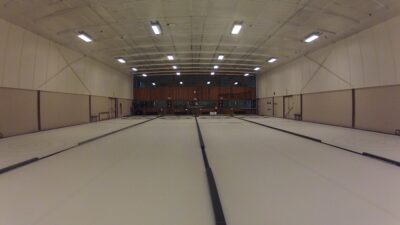Competitive gaming has transformed from a niche hobby into a global phenomenon, drawing millions of players and spectators alike. From MOBAs to first-person shooters (FPS) and battle royale titles, the thrill of ranked play offers a unique blend of strategy, skill, and teamwork. Yet, jumping into the competitive scene isn’t just about raw talent—preparation is key. Here’s how to gear up for success in your favorite games.
Understanding the Competitive Landscape
Before diving into ranked matches, it’s vital to understand the structure of competitive play in your chosen game. Most titles feature a tiered system where players are matched based on skill levels—commonly referred to as Elo ratings in games like League of Legends or a similar MMR (Matchmaking Rating) system in others.
-
Learn the Mechanics: Familiarize yourself with the game’s mechanics, character abilities, maps, and game modes. Each game has its nuances, and understanding these can give you an edge.
- Ranked vs. Casual Play: Competitive matches demand a different mindset compared to casual play. Ranked games often require better communication, coordination, and a focused strategy.
Developing the Right Mindset
A strong mental attitude is essential for performing well in competitive settings. Here are some tips on cultivating the right mindset:
-
Set Realistic Goals: Aim for achievable milestones, whether it’s improving your rank, mastering a specific character, or enhancing your communication skills. Unrealistic goals can lead to frustration.
-
Stay Positive: Competitive gaming can be emotional, especially during losing streaks. Practice staying calm and composed. Learning from mistakes is essential for growth.
- Embrace the Learning Curve: Accept that you will encounter setbacks. Improvement comes from understanding why you lost and making the necessary adjustments.
Building Game Knowledge
A comprehensive understanding of your game of choice can significantly impact your performance.
-
Watch and Learn: Observing high-level players through live streams or tournament play can provide insights into advanced strategies, map awareness, and character synergy.
-
Practice Regularly: Just like any sport or skill, consistent practice is vital. Set aside dedicated time for both solo practice and team training sessions to hone your abilities.
- Analyze Your Gameplay: Recording your matches and reviewing your performance can highlight areas for improvement. Consider keeping a journal to track your progress over time.
Communication and Teamwork
In competitive gaming, collaboration often determines the outcome of matches.
-
Use Voice Chat: If your game supports team communication, use voice chat to relay information efficiently. Good communication can turn the tide of battle.
-
Learn to Play Your Role: Most competitive games assign roles or positions within a team. Understanding your role and synergizing with teammates is crucial for creating a balanced team strategy.
- Be a Team Player: Support your teammates, whether by making sacrifices for the team or providing constructive feedback. A team that communicates well often outperforms even highly skilled players.
Preparing Physically and Mentally
Physical well-being impacts gaming performance more than you might think.
-
Stay Healthy: Maintain a balanced diet, hydrate regularly, and get enough sleep. Physical health contributes significantly to mental acuity during gameplay.
-
Take Breaks: Avoid burnout by taking regular breaks during long gaming sessions. A quick walk or stretch can help refresh your mind.
- Mindfulness Practices: Techniques such as meditation or breathing exercises can help reduce stress and improve focus during intense matches.
Technical Setup
A smooth gaming experience is essential for competitive play.
-
Optimize Your Setup: Ensure your gaming equipment—mouse, keyboard, and monitor—are set up for optimal performance. Settings like sensitivity and refresh rate can impact your reaction time.
-
Check Your Internet Connection: High ping can ruin your gaming experience. Use a wired connection whenever possible and close background applications that may slow down your connection.
- Adjust In-Game Settings: Tailor graphics settings to strike a balance between visuals and performance to ensure you have the smoothest gameplay possible.
Conclusion
Preparing for competitive play in your favorite games requires more than just skill—it’s a multi-faceted approach that includes understanding game mechanics, maintaining a positive mindset, honing communication skills, taking care of your physical health, and optimizing your technical setup. By dedicating time to these areas, you’ll be well on your way to ranked success. So gear up, practice hard, and dive into the exhilarating world of competitive gaming. Victory awaits!


